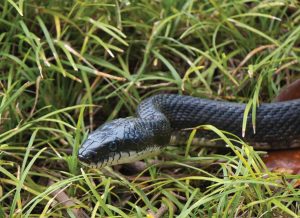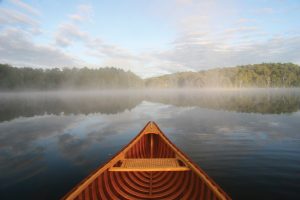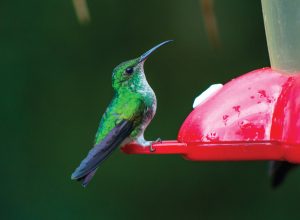For thousands of years, mankind has huddled around the glow and warmth of a fire. The flickering flames have provided light and protected us from the threat of cold, danger of savage beasts and brought us together.
Campfires have a unique ability to dissipate social barriers. Whether doctor, lawyer, professional or blue-collar worker, when sitting around a campfire and watching the flickering flames, all are equal.
When growing up, every boy in town carried a Zippo lighter. We would pride ourselves and show off by flipping open our lighter with one hand while simultaneously spinning the striker and creating a flame.
Building a campfire was never a problem. Great pride was taken laying the basis for a “one match” campfire in all types of weather. Over the years, I’ve built hundreds of them. Most were built strictly for enjoyment, but a few came out of absolute necessity.
One such instance occurred years ago when my friend Steve and I took a February trip down the Big Flatrock River in Indiana. Steve had permission from a farmer to look for Native American relics on an ancient campsite in the farmer’s river bottom field. Rather than slog through a horrendous distance of soupy, muddy farmland, we decided to take the canoe.
Steve and I had put untold miles on the old canoe with nary a mishap. We were both warmly dressed and had our life jackets on over our coats. It was cold, as ice still lined the protected bays, and the temperature was just above freezing.
Landing adjacent to the ancient Native American campsite, I jumped out and prepared to pull the canoe higher onto the bank. It was our usual procedure, but somehow the message was misconstrued that day.
As I said, “Ready,” and then forcefully pulled the canoe further up the bank, Steve thought I was stabilizing the canoe for him to get out… and he stood up. I virtually yanked the canoe out from under Steve as he plunged overboard into the frigid waters.
He came out of the water sputtering, scrambled up the bank and began to violently shiver. I knew we were in a predicament. Our truck was another two hours down river and it was impossible for us to go back against the current. The nearest farmhouse was a hard hike, probably two miles away. Hypothermia for Steve was just minutes away.
I grabbed a songbird nest out of a bush and broke the dry tops off some high standing grass. I stuffed the grass into the nest and began to gather small dead twigs off the standing bushes. Pulling my Zippo lighter out of my pants pocket, I unfolded the plastic bag I had wrapped around it to ensure it would stay dry.
The bird’s nest and grass ignited immediately and soon we had a roaring campfire.
Steve stripped down to his boots and boxer shorts and I gave him my shirt and jacket. We looked quite the pair with him almost bare from the waist down and me bare from the waist up. Both of us were shivering. We took bushy green branches and began to dry Steve’s clothes over the fire.
An hour later, we were relatively dried out and able to get back in the canoe and head downstream.
For many years following the wintertime dunking, when we landed the canoe, I would jump out, and Steve would sit there patiently with both hands on the gunnels while I pulled the canoe further up the bank.
Sportsmen and outdoor lovers should always carry the tools necessary to build a fire when afield. You can never tell when it might possibly save a life.










